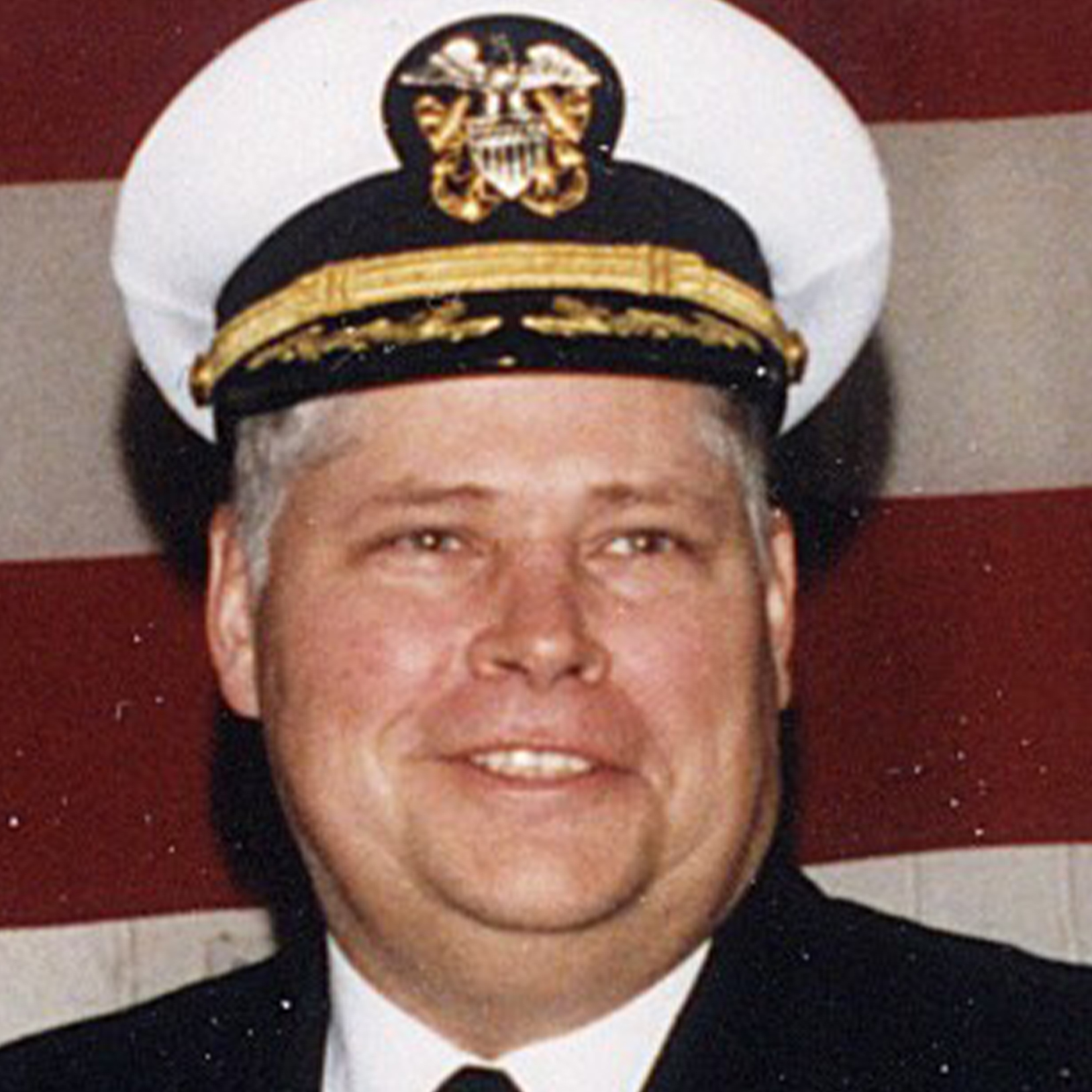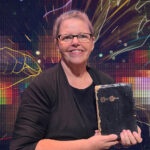
David Thompson
Chaplain (CDR) David Thompson, CHC, USNR (Ret.), has served the Free Methodist Church as a U.S. Navy chaplain, pastor, hospital chaplain/hospice grief counselor, and Minn-I-kota Conference superintendent (1992–95). He has also served as a mental health counselor for the Minnesota National Guard Beyond the Yellow Ribbon program with care for deploying and returning troops and their families during the Iraq/Afghanistan wars. He is a retired North Central Conference elder living with his wife, Judy, in Rosemount, Minnesota, near their three sons and eight grandchildren. This article was originally written for the Chaplains Association of the Free Methodist Church’s CONNECT! newsletter and is adapted with permission.
By David Thompson
I received the good news of a revival breaking out at Asbury University when I read a Light + Life article titled “Awakening at Asbury and Beyond.” I was heartened with this movement of God in our midst, and I pray it will continue to spread across our country.
Then I read an article on revival by Timothy Keller published Feb. 5 (three days before the outpouring began at Asbury) by The Atlantic and titled “American Christianity Is Due for a Revival.” One thing that captured my eye was Keller’s noting that one of the conditions for long-term revival and growth of the church is “the ability to speak compellingly to non-Christian people.”
Chaplains in a variety of settings — from prisons, hospitals and hospices, law enforcement agencies, and the military, ministering outside the boundaries of the local church — have been engaging with non-Christian people in some of the darkest moments of their lives, attempting to bring hope and faith to those they serve.
Reaching Outside the Church
Because of these experiences, Free Methodist chaplains have unique understandings to offer the church regarding effective ways to reach out to people outside our church doors.
_
“We meet them on the worst days of their lives…”
_m
Chaplains know the difficulties of working with people and institutions who are either indifferent or downright hostile to our faith. We are striving to have intentional, faith-embedded conversations with people who either have never known Jesus or who have long since, through negative life experiences, drifted far from God.
The people chaplains meet daily are not dressed up in their “Sunday best” clothing or easily speak about spiritual things. We meet them on the worst days of their lives in combat, in rooms in hospitals and hospices, in prisons, or riding in a patrol car to a tragedy. We try to help them cope with crises in their lives. Into this world, our chaplains venture every day.
Chaplains, many with counseling experience and clinical pastoral education (CPE) skills, have been taught how to engage with those whom they serve. Yet, for some of us, we can way too easily become media caricatures of a chaplain (Father John Mulcahy of “M*A*S*H,” the TV series in the 1970s and ’80s, comes to mind) as a hail fellow well met who tries to cheer people up without communicating the hope of the gospel. Other chaplains have become skilled in connecting and communicating with non-Christian people, often in desperate circumstances, building bridges to lovingly share Christ.
_
“We cannot do this work in our own strength.”
_m
To be an effective chaplain calls for us to be revived ourselves, allowing the Holy Spirit to work in our lives. The Spirit cleanses and renews us. We cannot do this work in our own strength. If we rely on our strength, we will be in a lot of trouble — headed for burnout and despair ministering in this dark world of combat, illness, death, crime and prisons. We must depend upon the Holy Spirit for wisdom and strength in the hour of need and direct our encounters with non-Christian people in these settings. We need to rely upon God’s prevenient grace to prepare those we meet to be able to hear the good news of the gospel. We need to depend upon the Holy Spirit to lead us to those who are ready for these teachable moments and to give us the courage to speak God’s truth in love to them.
Effective chaplaincy also calls for us to be aware of the cultural and religious views and values of non-Christians. We need to find ways to winsomely and compellingly speak to their concerns and share our faith in words and actions. We cannot limit our ministry to people who think and act just like we do.
Above all, we should make these encounters with humility and grace. We should not talk down to someone but should admit our needs and shortcomings as well in our sharing: like one hobo telling another hobo where to find food (for the soul). St. Paul tells us in Colossians 4:6, “Let your speech be always with grace, seasoned with salt, that ye may know how ye ought to answer every man” (KJV).
_
“Daily we encounter non-Christian people and try to engage them in conversations that can lead to a life-changing redemptive relationship with Christ.”
_m
Chaplains have a lot to share with the church on how to go into ordinary places where people live far from the doors of the church, using their experiences serving in the military or in law enforcement, or working in settings where people are imprisoned or suffering illness and facing death to speak to unreached peoples. Daily we encounter non-Christian people and try to engage them in conversations that can lead to a life-changing redemptive relationship with Christ. We also can be a resource to local churches and conferences on how to build relational bridges with non-Christian people, communicating in word and deed, the love of Jesus and hope of the gospel.
Personal Revival
We need renewal and revival in our own lives and in our chaplaincy vocation. Without the Wind of God’s Spirit in our work, we are powerless to communicate the good news of the gospel effectively to non-Christians in our ministry. This requires study of diverse worldviews and doing our apologetics homework to be able to respond to their questions and concerns. It means getting out of our comfort zones of only being among those already in the fold and not go out to find the lost sheep. It means bathing in prayer our daily encounters and seeking God’s guidance in sharing our faith with those whose hearts have been prepared by the Lord. We need to build relational bridges with those different from us in race, religion, politics and culture, from whom we earn the right to have meaningful faith-embedded conversations.
Above all, we need to be an example of love and grace to a non-Christian world. St. Francis of Assisi is reported to have said, “Preach the gospel at all times, and if necessary, use words.”
Keller expands on this above-mentioned truth with the story of Eric Liddell:
“Langdon Gilkey was a young man in China during World War II and was confined to a Japanese-run internment camp, as he recounts in ‘Shantung Compound.’ Also imprisoned with him was Eric Liddell, the former Olympic star and missionary to China whose story inspired the film ‘Chariots of Fire.’ Gilkey, who was not a Christian believer when he was interned, is honest about how the many missionaries in the cramped and difficult conditions of the camp not only behaved in selfish and ungenerous ways, but often added sanctimonious rationales for their behavior. Liddell, however, stood out. He poured himself out for others and was overflowing with humor, kindness, and an unmistakable inner peace. When Liddell died suddenly of a brain tumor, all mourned.
“Gilkey concluded that religion and moralism do not produce love. Often, they make self-centeredness worse, especially when they lead, as they will, to pride in one’s moral accomplishments. Liddell, however, believed the gospel of sheer grace through Christ. In Liddell, Gilkey had a picture of what we could be if we are at the same moment humbled yet profoundly lifted high by the knowledge of God’s unconditional love through undeserved grace.”
Only in these ways, by word and example, can we effectively communicate our faith with the non-Christians we encounter … and share with our church how to do this good work to revive us again.
O Breath of Life
I close these thoughts with the words of Bessie Porter Head’s prayerful 1920 hymn, “O Breath of Life,” that I hope we can all embrace in this exciting time as we seek revival in our midst (click here to listen and sing along):
O Breath of life, come sweeping through us,
Revive Your church with life and power.
O Breath of life, come, cleanse, renew us,
And fit Your church to meet this hour.
O Wind of God, come bend us, break us,
Till humbly we confess our need;
Then in Your tenderness remake us,
Revive, restore, for this we plead.
O Breath of love, come breathe within us,
Renewing thought and will and heart;
Come, Love of Christ, afresh to win us,
Revive Your church in every part.
Revive us, Lord! Is zeal abating
While harvest fields are vast and ripe?
Revive us, Lord, the world is waiting,
Equip Your church to spread the light.
+

David Thompson
Chaplain (CDR) David Thompson, CHC, USNR (Ret.), has served the Free Methodist Church as a U.S. Navy chaplain, pastor, hospital chaplain/hospice grief counselor, and Minn-I-kota Conference superintendent (1992–95). He has also served as a mental health counselor for the Minnesota National Guard Beyond the Yellow Ribbon program with care for deploying and returning troops and their families during the Iraq/Afghanistan wars. He is a retired North Central Conference elder living with his wife, Judy, in Rosemount, Minnesota, near their three sons and eight grandchildren. This article was originally written for the Chaplains Association of the Free Methodist Church’s CONNECT! newsletter and is adapted with permission.









